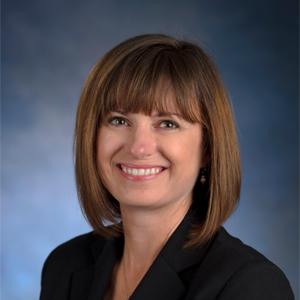
Credit: Georgia State University
ATLANTA–Intimate and social relationships remain important for older adults residing in assisted-living facilities, according to a recent study.
In a study examining the intimate and social relationships of married and unmarried couples in assisted living, researchers found benefits of late-life couplehood included companionship, support and affection. However, there were some detrimental outcomes, such as feeling the burden of caregiving, feeling defined by one's spouse and having limited choices.
The study also showed the importance of social relationships. While many assume couples have each other and don't need or want external relationships, the frailty of participants in this study and the range of marital quality showed coupled residents could not always rely on their intimate partners for support. Fellow residents may prove to be important confidantes, companions and friends to coupled residents in assisted living, and they can help shield against negative health outcomes associated with marital transitions, such as when a spouse is ill or dies.
The findings, published in the journal The Gerontologist, demonstrate the complexity and range of later-life couples' intimate and social lives.
"These are important relationships and to the extent that they can be supported have really significant implications for well-being and quality of life for older adults," said Dr. Candace Kemp, associate professor in the Gerontology Institute and Department of Sociology at Georgia State University. "In some cases, particularly with the married couples, these are marriages that are 60 and 70 years in the making, and to separate people and not facilitate them aging in place together can be problematic."
For instance, couples usually don't experience health declines at the same rate. If a husband or wife suffers from cognitive impairment, the assisted-living facility might suggest moving the person to a dementia care unit and leaving his or her spouse on the assisted-living side, which separates the couple, Kemp said.
"I think doing work in this setting is important," Kemp said, "and it's quite possible with people living longer that there will be more couples in these situations, whether they're married or unmarried. We certainly know very little about unmarried couples in later life."
Intimate relationships have a profound effect on older adults' health, well-being and daily lives, but research has not explored the complexity of later-life couples' daily lives and experiences, particularly in the contexts of advanced age, health decline and long-term care settings such as assisted living. Older adults typically move to assisted living because of health decline, shifting dependence patterns and an inability or reluctance to maintain their former residence. Couples are now a minority in assisted living, but they may become more common as the population ages.
"The nice thing about these communal settings is there are a lot of widowed, divorced and never married people, and there is potentially opportunity to develop relationships," Kemp said. "It makes a huge difference in the quality of life and the day-to-day life experience to have that intimate connection with somebody else. These were probably unexpected relationships for the unmarried couples, but very fulfilling relationships for those who manage to find a partner."
Through participant observation and informal interviews, the researchers collected data for one year on 29 couples (26 married and three unmarried) in eight diverse assisted-living facilities in Georgia. The 26 married couples were in long-term relationships, while the three unmarried couples met in assisted living, which shows intimate relationships can develop late in life and in assisted living. The small number of couples in the study is attributed to high impairment levels and gender imbalance in assisted living.
Despite the benefits of late-life couplehood in assisted living, some of the downfalls included the potential for other partners, induced jealousy and marital infidelity. Unmarried couples, particularly women, were gossiped about, indicating different cultural norms apply to older men and women and married and unmarried couples.
The researchers recommend strategies to support couples in assisted living should focus on individual needs and shared needs as a couple, particularly as couples experience physical and cognitive decline over time.
"There are some scenarios, particularly if the caregiving spouse is doing so much work and worrying so much, that they can compromise their health by trying to do more than they're able to do," Kemp said. "I think it's finding that balance between what's best for both the individual and the couple and sometimes those are in conflict."
###
Collaborators for the study include Drs. Mary M. Ball and Molly M. Perkins of Emory University. The project was supported by Award Number R01AG030486 from the National Institute on Aging (Mary M. Ball, Principal Investigator). The content is solely the responsibility of the authors and does not necessarily represent the official views of the National Institute on Aging or the National Institutes of Health.
Media Contact
LaTina Emerson
[email protected]
404-413-1353
@GSU_News
http://www.gsu.edu
############
Story Source: Materials provided by Scienmag




